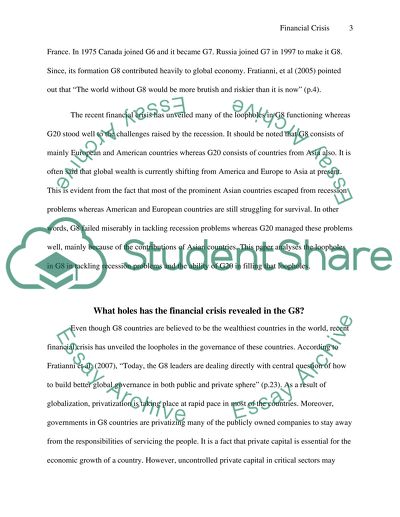Cite this document
(“What Holes Has The Financial Crisis Revealed In The G8 Will The G20 Essay”, n.d.)
Retrieved from https://studentshare.org/history/1403705-what-holes-has-the-financial-crisis-revealed-in
Retrieved from https://studentshare.org/history/1403705-what-holes-has-the-financial-crisis-revealed-in
(What Holes Has The Financial Crisis Revealed In The G8 Will The G20 Essay)
https://studentshare.org/history/1403705-what-holes-has-the-financial-crisis-revealed-in.
https://studentshare.org/history/1403705-what-holes-has-the-financial-crisis-revealed-in.
“What Holes Has The Financial Crisis Revealed In The G8 Will The G20 Essay”, n.d. https://studentshare.org/history/1403705-what-holes-has-the-financial-crisis-revealed-in.


